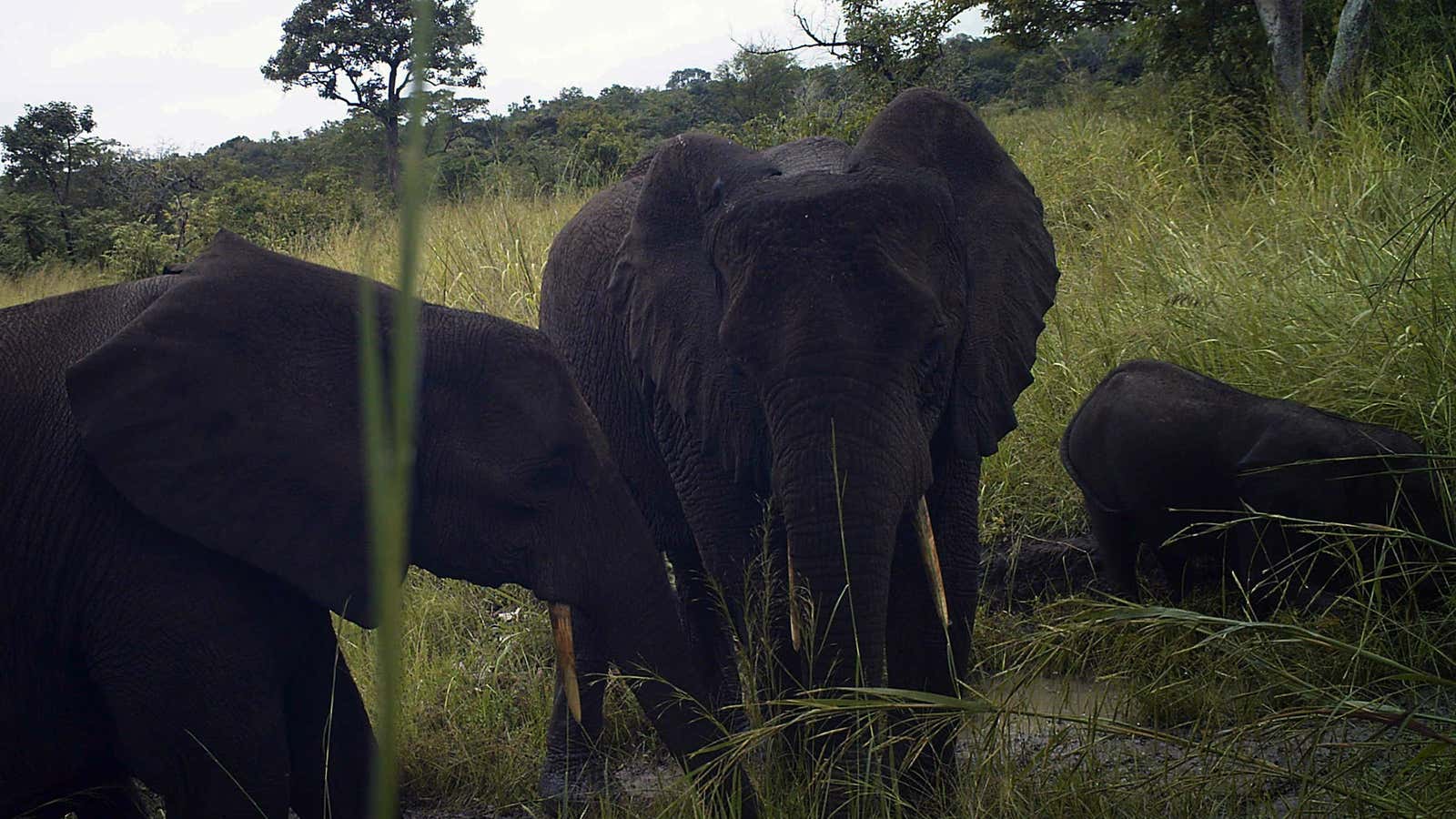South Sudan’s National Wildlife Service says armed poachers slaughtered 17 elephants for their ivory tusks in a single incident in the country’s swampy Warrap state in February.
The massacre followed the killing of 15 elephants in January in the same area, besides smaller incidents near the country’s Boma National Park in the east.
Ironically, the apparent uptick in elephant poaching may be the result of the country’s progress toward peace.
After two years of civil war which killed tens of thousands of people, South Sudan’s government and rebels are set to come together and form a transitional government this month.
But according to Paul Elkan, who leads the Wildlife Conservation Society’s South Sudan office, this phase is the riskiest time for wildlife because there are still plenty of soldiers around, but they don’t have much fighting to do. ”You’re looking at this really dangerous place where it’s not quite peace, but it’s still war,” says Elkan. “It’s this transitional period where things are settling down and people are being opportunistic and they have guns.”
What’s worse, the government is nearly out of cash after spending at least $850 million dollars on weapons during the war.
“If I’m a soldier and based out there in the bush, and I’m being drawn off the frontlines next week or the coming weeks and I haven’t been paid in a while, I’m gonna get what I can and loot, and part of the looting is the natural resources,” Elkan says.
Both the government and rebel armies are implicated in poaching not only elephants but antelopes hunted for bushmeat to feed soldiers. In February, Wildlife Service rangers arrested 19 government soldiers at Bandingilo National Park with 21 sacks of bushmeat representing up to 62 antelopes, WCS said.
Civilians are in on the take too. NWS director general Philip Chol Majak blamed the Warrap poaching on a local militia protected by local administrators and chiefs, who he said have prevented his rangers from investigating and making arrests.
Besides poaching, there’s been a rise in trafficking cases too. Majak says people are trying to smuggle ivory by road out of the country and through Juba International Airport.
Still, Elkan cautions that war is not better than peace for wildlife. He says the elephant populations have been “hammered” during the conflict, with at least 30% of elephants fitted with radio collars before the war were killed since. There were fewer than 2,500 elephants in South Sudan before the war, according to Elkan, but fighting has prevented a full survey since.
Elkan says protecting South Sudan’s elephants will ultimately depend on the government and rebels coming together and making peace.
“I’m hoping with the transitional government we can get a higher level and involve the armed forces for a real top-down elephant security force to stop armed poaching or trafficking,” he said.
